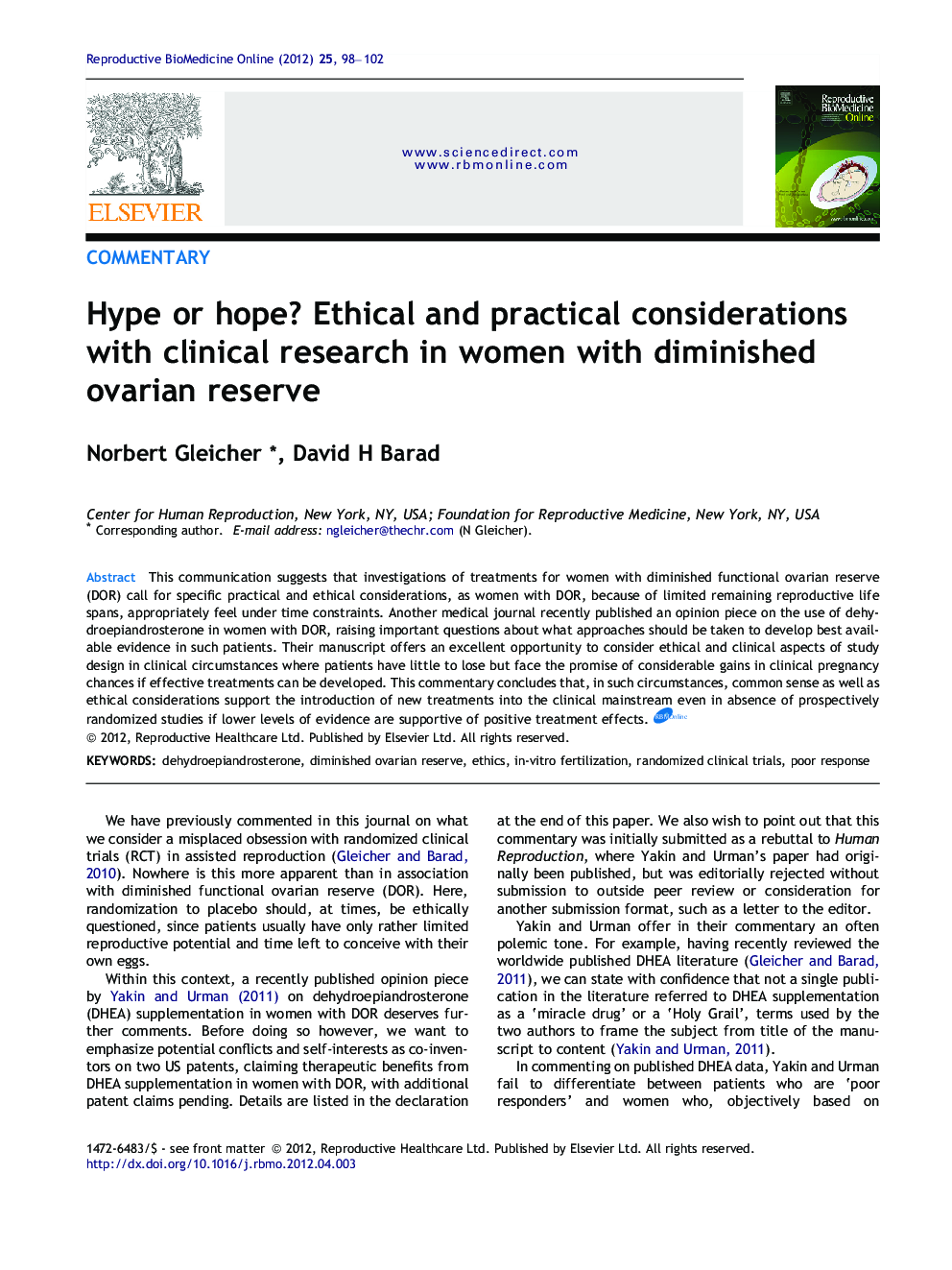| Article ID | Journal | Published Year | Pages | File Type |
|---|---|---|---|---|
| 3970447 | Reproductive BioMedicine Online | 2012 | 5 Pages |
This communication suggests that investigations of treatments for women with diminished functional ovarian reserve (DOR) call for specific practical and ethical considerations, as women with DOR, because of limited remaining reproductive life spans, appropriately feel under time constraints. Another medical journal recently published an opinion piece on the use of dehydroepiandrosterone in women with DOR, raising important questions about what approaches should be taken to develop best available evidence in such patients. Their manuscript offers an excellent opportunity to consider ethical and clinical aspects of study design in clinical circumstances where patients have little to lose but face the promise of considerable gains in clinical pregnancy chances if effective treatments can be developed. This commentary concludes that, in such circumstances, common sense as well as ethical considerations support the introduction of new treatments into the clinical mainstream even in absence of prospectively randomized studies if lower levels of evidence are supportive of positive treatment effects.
